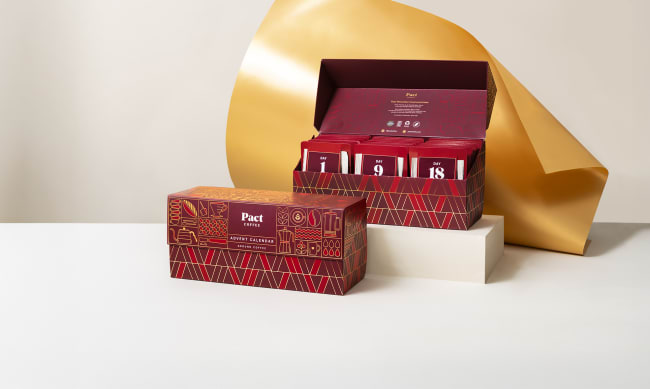Our origin guides give you a good overview of the characteristics of origins we source from, and the environment in which the coffee is grown. But we are not currently sourcing coffee from Ethiopia.
At Pact Coffee, we believe in not just offering great coffee but also in making ethical choices that have a positive impact. We understand the significance of Ethiopian coffee, which serves as the backbone of the country’s economy. But it’s crucial to acknowledge the challenges in the Tigray war, where a brutal civil war has caused immense suffering.
The conflict has resulted in hundreds of thousands of estimated deaths, with clear evidence of war crimes, and has pushed millions of people into potential famine. The situation is deeply concerning, and we feel it’s essential to take a stand against contributing to any potential funding for the government’s arms purchases.
When we purchase Ethiopian coffee, dollars are paid into a central bank. From there, some of the money is distributed to farmers in local currency, and the rest is paid in dollars. This process allows the government to decide whether to accumulate more local currency or dollars, which could be used for foreign arms purchases. This clearly isn’t what we want to fund.
As a responsible coffee company, we believe that the coffee industry can exert sustained economic pressure on the government to choose a different path – one that leads to a peaceful resolution of the conflict. By refraining from buying Ethiopian coffee since the war began, we aim to draw the world’s attention to this tragic situation.
In November 2022, a peace treaty was signed between the government of Ethiopia and the Tigray People’s Liberation Front (TPLF). This was enough for some roasters. But since this agreement, serious human rights issues remain.
Local authorities and Amhara forces in the Western Tigray Zone of northern Ethiopia have been conducting an ethnic cleansing campaign against Tigrayans. Despite international law granting people forcibly displaced from their homes the right to return, the current situation in Western Tigray does not allow for voluntary, safe, and dignified returns. Tigrayans face continued threats and harassment. As recently as January 2023, according to The Economist, ‘lands remain occupied and Eritrean troops have not left’.
We stand united with those advocating for peace in Ethiopia, and we commit not to purchase Ethiopian coffee until a peaceful resolution is achieved. Our hope is that together, we can make a positive impact and help bring attention to the urgent need for true peace in the region.
We continue to keep an eye on the situation and will keep this guide updated as it develops.






